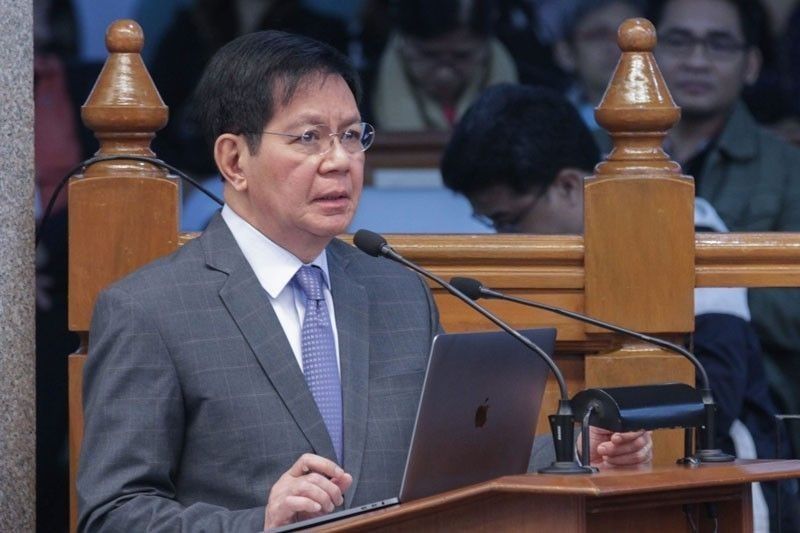Senators push laws to promote good manners, PE

MANILA, Philippines — Senators are pushing for legislation to promote physical activity as well as good manners and right conduct (GMRC) amid excessive use of social media, inactivity and rising obesity among young Filipinos.
Senators Sonny Angara, Panfilo Lacson and Bong Revilla filed bills to mandate physical exercise and games and GMRC in schools, citing the adverse effects of gadget use that international agencies and medical groups say contribute to rising depression and obesity among teenagers.
The World Health Organization study reportedly found Filipino teens were considered to be the second most physically inactive in the world while a survey of Dream Project PH showed 70 percent of the country’s youth don’t have a dream.
“This finding bothers me about teens not having a dream. We should work on this; great things are not possible without hope and without dreams,” Angara said on Instagram.
Lacson said institutions must make sure Filipinos learn GMRC during their formative years from Kindergarten to Grade 3.
“High-tech gadgets and devices may teach new things to many Filipino children and youths, but good manners and right conduct may not be among them,” Lacson said.
He said modern technology threatens to impact the social skills and manners of the youth.
“In order to create a balance, it is necessary for our educational system to aid the Filipino family in imparting good manners and right conduct to our young students by its inclusion in the curriculum at the beginning of their school years,” Lacson said in Senate Bill 1185.
Lacson said Education Secretary Leonor Briones has warned, “technology without good manners is a disaster” as empathy, compassion and humanity cannot be learned in an “online or technology-driven pedagogy.”
The measure aims to balance the effects of gadgets and devices by honing the youths’ attitude, values and perception with good manners during their formative years.
Lacson said the GMRC should inculcate among the students the concepts of “human dignity, respect for oneself and giving oneself to others in the spirit of community, for the effective and holistic development of the decision-making skills of the child.”
Under the bill, the curriculum will focus on the basics of GMRC including caring for oneself, giving concern for others, according proper respect to people, upholding discipline and order, cultivating sincerity, honesty, obedience and love for country.
Revilla, for his part, expressed his commitment to curb the rising rate of obesity in the Philippines, especially among the youth, by inculcating more physical activities and traditional games in the K to 12 curriculum.
Revilla filed Senate Bill 1121 seeking to provide for the mandatory inclusion of anti-obesity education program, and exercise, including play and traditional games, in the private and public pre-school, elementary and high schools.
He said awareness, appreciation and responsibility of a person to his or her own health should start at a young age to build a strong foundation of healthy lifestyle and to encourage prevention of illnesses.
Revilla cited the 8th National Nutrition Survey conducted from June 2013 to April 2014 by the Food and Nutrition Research Institute, that showed five percent of children aged 0-5 and 8.3 percent of kids aged 10-19 are overweight.
On the other hand, an alarming 31.1 percent of adults are suffering from clinical obesity. The study also revealed the prevalence rate of being overweight and obese among children 0-5 years old rises at an average of 0.17 percent annually for the past 24 years.
The World Health Organization (WHO) mentioned the Philippine youth as among the “least active” together with South Koreans.
Four in five adolescents in the Philippines and South Korea fail to exercise for even 60 minutes a day, according to the WHO study.
The Philippines had the highest inactivity levels among boys at 93 percent, the WHO said, while 97 percent of South Korean girls failed to do enough exercise.
In gender terms on global average, 85 percent of girls failed to exercise sufficiently, slightly worse than boys at 78 percent.
“From 2001 to 2016 we found that there’s been no improvement in patterns of activity in this age group… one hour out of their lives each day to be physically active and to get a health benefit from being physically active,” said the WHO study co-author Dr. Leanne Riley.
“That can be made up of different small chunks of their time, anything that adds up to 60 minutes,” Riley said.
Senate Majority Leader Juan Miguel Zubiri and Sen. Joel Villanueva earlier filed their respective GMRC proposals.
Sen. Sherwin Gatchalian said the Department of Education should make responsible social media use a key component in mental health programs for schools, noting that increased smartphones and social media use has been linked to depression and anxiety among children and adolescents.
- Latest
- Trending





























